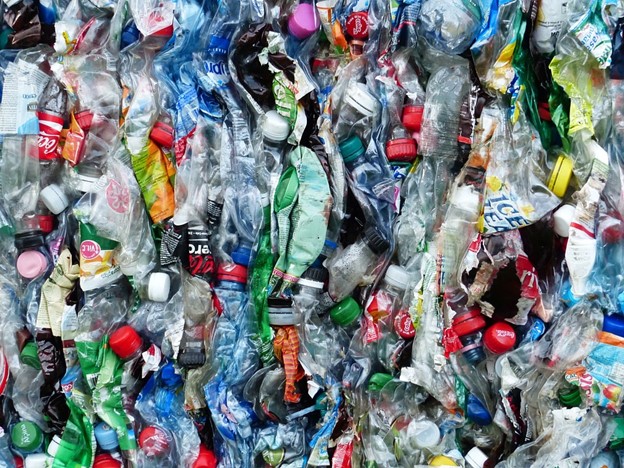
How Does Plastic Waste Harm the Environment?
Trash usually ends up washing up on beaches and travels throughout oceans and rivers. It affects physical habitants, affects marine life, transports chemical pollutants, and interrupts human uses of coastal, marine, and river environments.
Out of all trash, plastic trash poses the biggest danger to the environment. It can be found on the bottom of water bodies, suspended in the water column, and floating at the surface. With the help of currents, it can be transported to the ocean by rivers. So, how does plastic harm the environment?
Plastic Bags
Until a few years ago, plastic bags were considered as one of the most convenient and cheapest solution for carrying personal stuff. Whether one had to make a visit to the nearby supermarket or need something to carry materials for their job, the plastic bags accompanied them everywhere.
It was only a while back, where the damage inflicted by plastic to the environment, was not only recognized, but certain steps were taken to discourage the use of plastic. For this purpose, many countries introduced a small fee to deter people from using plastic bags.
But what is so bad about these bags? For starters, plastic is made from crude oil. This is a cause of concern because crude oil releases a considerable amount of pollution into the atmosphere. In addition, this also means that plastics aren’t biodegradable.
Studies suggest that a plastic bag takes at least 400 years to biodegrade, along with introducing the following risk.
- Around 100,000 sea turtles and other marine animals die every year because they mistake plastic bags for food or get strangled by them.
- Nearly 50 million garbage bags are released in Australia every year, creating a patch that looks like a plastic soup in the Pacific Ocean.
Many people believe that paper bags are an effective alternative. However, science says otherwise.
A better alternative to plastic bags is reusable bags. It is said that the latter can save almost 11 barrels of oil.
At Century Waste Management, you can ask us for alternatives to plastic bags. Meanwhile, we can remove your previous plastic trash.
Plastic Water Bottles
Like plastic bags, plastic water bottles used to be a common sight around the globe. It was a key component of everyday life, as it was discarded daily in large amounts. As a result, it was found that:
- It covered the surface of water bodies, such as oceans. This causes the destruction of wildlife and habitats.
- It causes landfills to overflow, which necessitates large amounts of fossil fuel
- Leads water to be imported from other countries. Consequently, the supply chain industry relies on trucks and other modes of transportation for delivery, which comes with a noticeable environment impact.
Although the EPA has evaluated tap water to be safe, even then, hundreds and thousands of water bottles are used every second in the U.S.
So, how do we address this dilemma? First, authorities must build more drinking facilities, which are convenient and encourage people to reuse plastic bottles rather than throw them after using it once.
Plastic Cups
Coffee cups are one of the biggest sources of plastic pollution. They consist of polyethylene and a plastic paste that keeps liquid warm. On the flip side, it can be recycled.
The production of paper cups has reached to 16 billion per year. This leads to 4 billion gallons of water going to waste, 6.5 million trees being cut down, and consumes energy which is sufficient to power a city for 12 months.
Alternatively, you can contribute by switching to reusable cups, instead of relying on paper or plastic. This refill model is increasingly being adopted in cafes and supermarkets.
Plastic Pollution Impact
At this point, you have already become familiar with some of the biggest effects of plastic on the environment. Now, let’s review it from the perspective of plastic pollution.
Plastic pollution is harmful for plants, animals, and humans due to introducing toxic pollutants. Generally, hundreds of years pass before the plastics decompose. Thus, their environment damage lasts for extended periods of time. Therefore, it causes direct harm to the food chain, from the largest mammals, whales, to one of the tiniest species, plankton, everyone is put at risk. Once plastic is ingested, toxins continue to infiltrate the food chain rapidly – sometimes, even fried fish can contain plastics.
Final Thoughts
If you have read up to this point, then you are certainly looking at your plastic bottle with a different perspective. Currently, we are learning more on how plastics harm the environment. Slowly and gradually, governments and organizations are taking major steps to curb down its use. In case you are still using it, consider giving a thought to a more environmentally friendly lifestyle – one that protects the environment.
Do you have a lot of plastic trash? Want to get rid of it quickly? Contact Titan National right now at 248.775.7400. We offer free consultation, so you can share your plastic concerns with us. We will help you to do your part in creating a better environment, which includes taking care of all your trash worries. Check out our work in Recycling. And don’t forget we offer dumpster rentals. Also, if you are city looking for a great waste management partner to help your community call Titan 248-775-7400 for municipal waste management services.